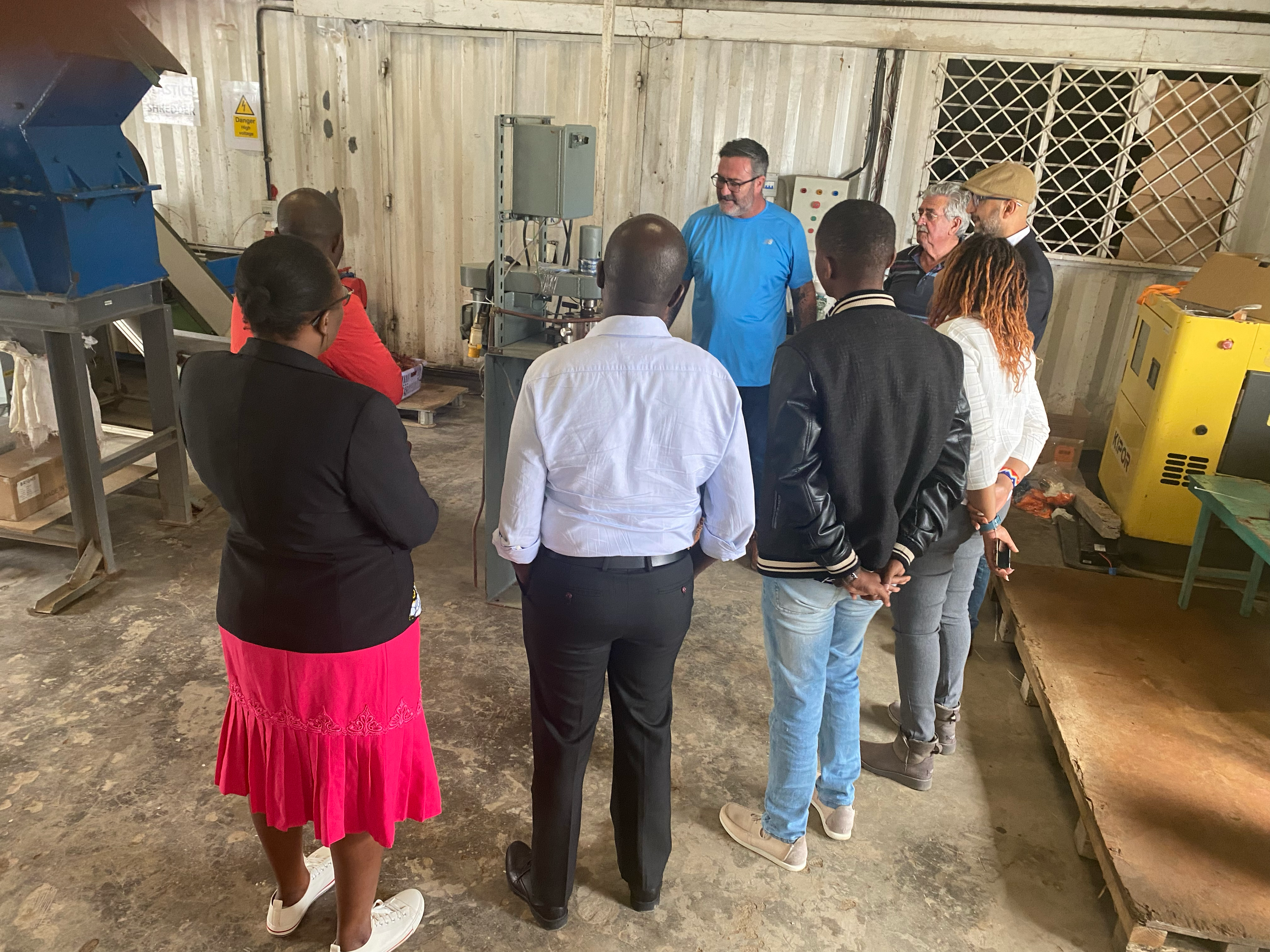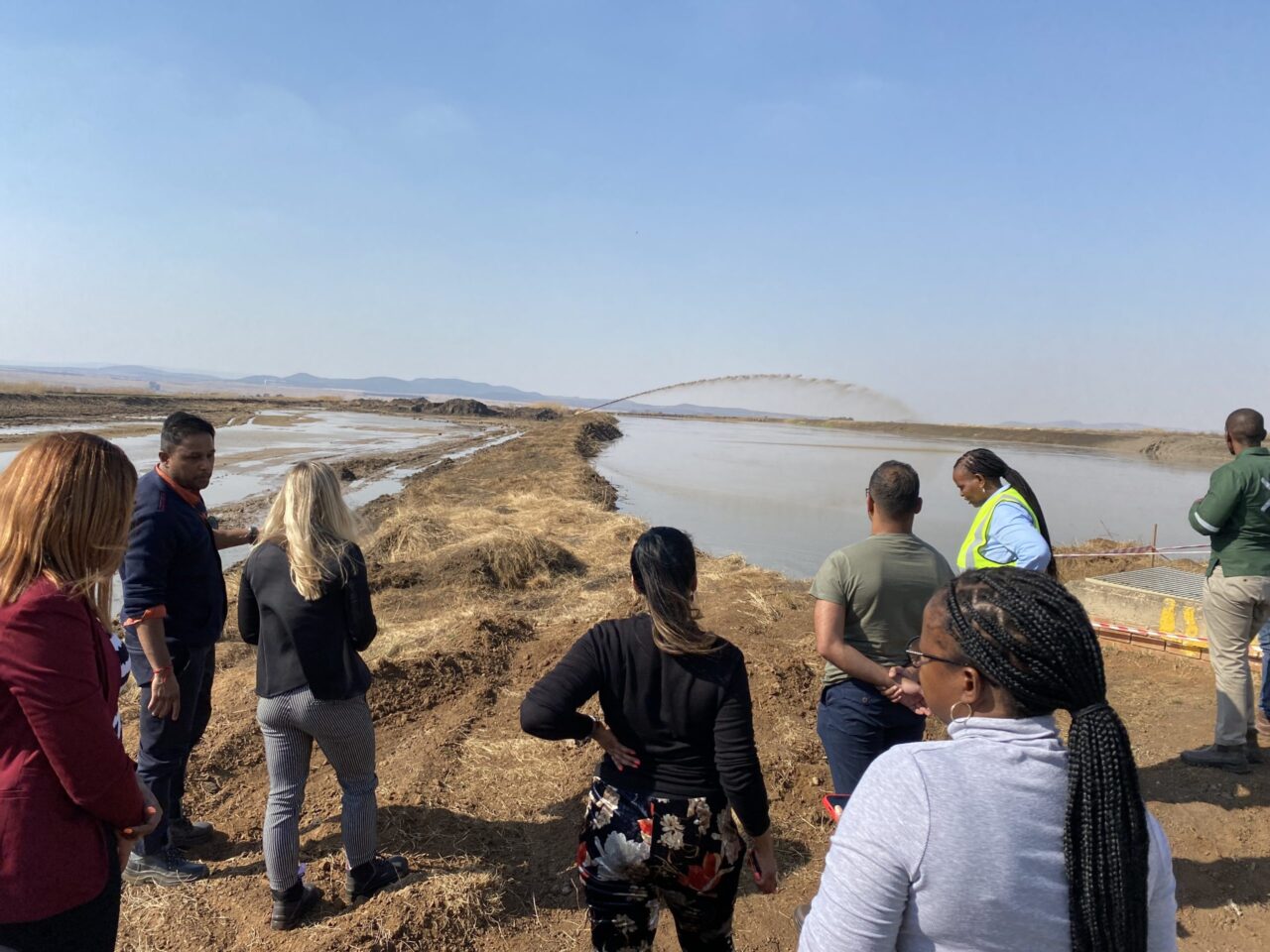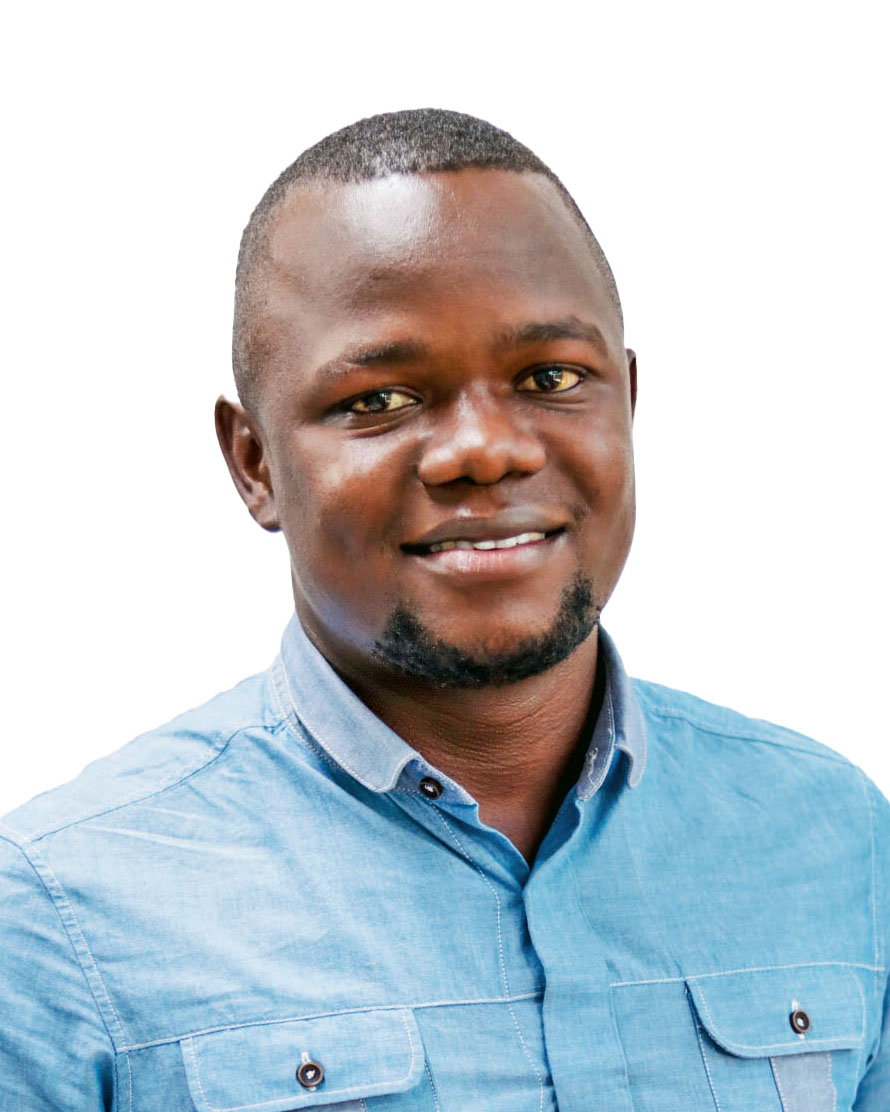Innovation Champions: WEEE Centre, Milav, RISE, and Quinnovations address e-waste challenge

Transforming Electronic Waste into Eco-Friendly Solutions: A Success Story
In a world where electronic waste (e-waste) is on the rise, finding sustainable solutions is imperative. This is an inspiring story of a successful collaboration between the WEEE Centre, Milav, RISE, and Quinnovations implemented through the Global Alliance Africa project, delivered by Innovate UK in Kenya. Together, they have embarked on a mission to address e-waste challenges and promote sustainable circular economy practices.
Milav and RISE, two of the winners of WEEE Centre’s CRT reuse and recycling challenge, have developed innovative solutions to recycle CRT waste. RISE’s lab work and Milav’s market study led to identification of new partners to extend the value chain. They successfully transformed 80% of the front panel glass into stunning artistic glassware.
In a parallel project, Quinnovations developed a solution to recycle the remaining 20% of rear leaded glass. Despite facing technical and logistical challenges, the team persisted and successfully shipped a lab-scale test kit from the UK to Kenya. Their tenacity and commitment to finding solutions to e-waste is helping them to achieve their vision of a sustainable future.
Connecting Expertise
The tripartite solution providers’ partnership with the WEEE Centre represents a convergence of expertise in e-waste recycling, scientific analysis and innovative engineering, aiming to develop solutions that tackle waste management challenges locally and globally. Through efficient processes and responsible resource utilisation, significant progress has been made in recycling valuable materials from discarded electronics, mitigating environmental hazards.
The collaborative effort has led to the development of an innovative lead recovery process that efficiently extracts lead from Cathode Ray Tube (CRT) glass waste.
Watch our video below to see how these businesses connected with each other through Innovate UK KTN.
Sheilah Birgen, Country Lead at Global Alliance Africa – Kenya, highlighted the importance of collaboration in this endeavour, saying:
Working with Quinnovations to showcase the potential of how collaboration can help us achieve greater results much faster is a great case study demonstrated by the UK and Kenyan partners who have been involved in this project. There has been great technology and knowledge transfer that goes beyond the CRT solutions, and we are keen to see all these great ideas implemented.
This process involves a state-of-the-art High-Pressure Hastelloy C reactor, precise measurement of reactants, controlled reaction conditions, agitation for a homogeneous mixture, and a four-hour reaction duration. The result is the dissolution of CRT glass waste into Sodium Silicate, with impurities precipitating while lead remains in solution.
The commitment to sustainability extends beyond waste management, as the partnership explores using CRT glass outputs to produce eco-friendly alternatives in construction materials, including geopolymer concrete blocks. Recovered materials, such as Sodium Silicate, are integrated into the production process, reducing the environmental footprint of construction activities while enhancing the industry’s resilience.
The success of the lead recovery process and eco-friendly geopolymer concrete block production has opened doors to future possibilities. The team envisions establishing a full-scale lead recovery plant to expand electronic waste recycling capacity. Collaboration with the Blue Planet Investment Group is being considered to support this vision.
Catherine Masolia, Chief Operating Officer at WEEE Centre, lauded this partnership, stating:
This has been the most successful, innovative, and futuristic project that has demonstrated the potential of the circular economy. We are committed to scaling and running this project to greater heights.
Global Impact
This collaborative project exemplifies the potential of sustainable engineering practices to reshape industries and promote responsible resource management. By successfully recovering lead from CRT glass waste and using it in eco-friendly construction materials, the partnership sets a standard for electronic waste management that can have a global impact. This endeavour underscores the importance of innovative solutions and responsible resource utilisation in creating a greener and more resource-efficient future.
Babar Javed, Open Innovation Lead and Knowledge Transfer Manager at Global Alliance Africa, expressed his enthusiasm for this initiative, stating:
We are glad to see an idea transform through all the stages of problem-solving to realising a solution. At first, it seemed almost impossible, but in the end, we have been able to achieve some great results from our joint efforts. This is a good testament to how the Innovate UK – Open Innovation approach can play a critical role in solving some of the world’s most pressing problems.
The project’s success has not only delivered concrete results but also imparted enduring learnings. To further strengthen the UK-Kenya innovation collaboration, the WEEE Centre plans to acquire the lead recovery technology, explore new business avenues, and continue collaborating with Quinnovations to maximise the impact of this transformative initiative. This partnership showcases the power of global collaboration, innovation, and community-focused initiatives in addressing electronic waste challenges and transforming them into opportunities for a more sustainable future.
Find out more about Global Alliance Africa’s Open Innovation intervention.
About Global Alliance Africa
Global Alliance Africa is a six-year project funded by UK International Development through Innovate UK (GCRF) and the Foreign, Commonwealth and Development Office (FCDO).

Follow us for more project updates
Twitter @IUK_Global
Instagram @WeAreGlobalAlliance
Webpage ktn-uk.org/programme/africa
Related programmes

Global Alliance Africa
This FCDO funded project aims to build stronger equitable UK-African partnerships to maximise the creation of inclusive market access, funding and investment opportunities, and collaborative innovation between the UK, Nigeria, South Africa and Kenya.

Open Innovation
Open Innovation is the belief that good ideas can come from anywhere, so it is worth looking widely, beyond your usual supply chains. Innovate UK has well-established methods for supporting Open Innovation, having run 200+ innovation challenges across the world. Our model allows diverse collaborators to respond to shared industry challenges in a mutually beneficial way.


